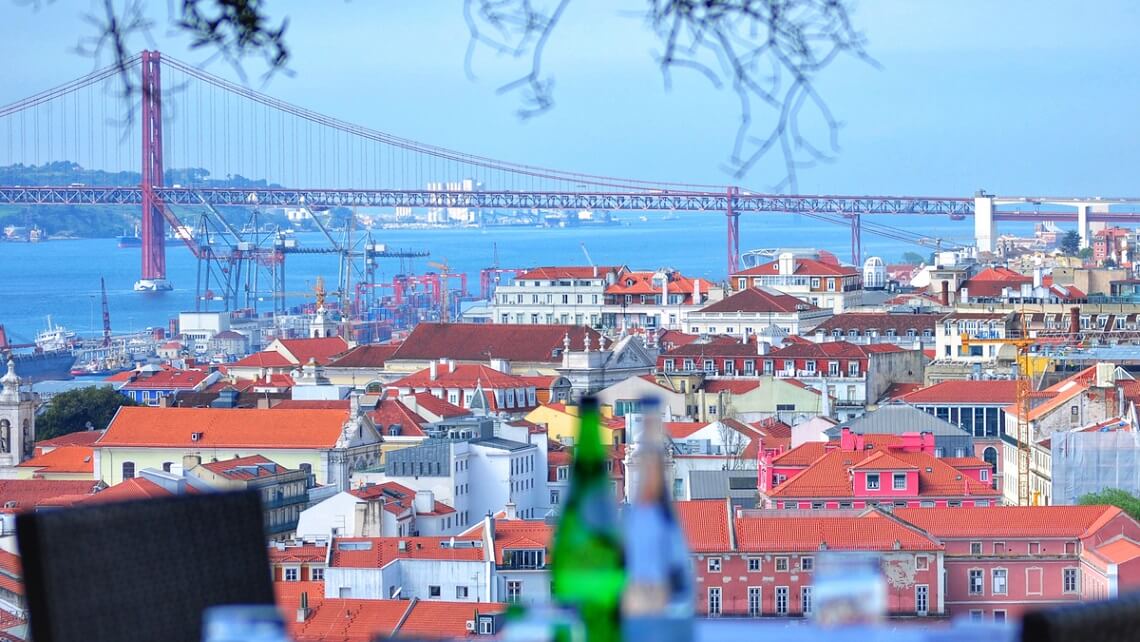Is Portuguese property worth buying right now? (2022, Q3) » FINANCIAL CHANNEL
Portuguese property has long been a sought after commodity for UK, US and overseas citizens – and with good reason. A generous climate and a gateway to European citizenship are two primary motivations for investors.
However, between 2020 and 2022, demand significantly exceeded supply and caused the price of Portuguese real estate to increase significantly. In fact, inflation-adjusted prices per square meter in the country have since risen to their highest level in 30 years.
Global Property Guide provided market analysis.
1) Current and historic property prices in Portugal
As shown above, prices per square meter in Portugal have increased significantly over the past two years:
The peak of growth began in 2021, fueled by local and foreign buyers.
According to figures published by INE (the Spanish Institute of National Statistics), investments by EU nationals increased by 72.3%, while capital from third countries increased by 79.1% (2021 ).
In addition, between 2015 and 2022, prices per square meter for new construction have increased by more than 90%. Adjusting for inflation, this statistic works out to an 80% increase.
The latest growth was likely inflated by Portugal’s “Golden Visa” program, alongside the Covid-19 pandemic and the Ukraine-Russia war.
Currently, Portuguese mortgage interest rates are increasing. This is mainly due to the Euribor, which is expected to reach between 4 and 5% in 2023. Most mortgages in Portugal are “floating”, which means that interest rates are generally 1 to 2% higher. Euribor.
It could be good news for buyers to pick up reasonably priced properties when prices start to drop. Because people are forced to sell their properties due to increasing loan repayments.
However, if inflation remains high in the EU and Portugal, property prices may well continue to rise as even more investors seek to reduce their cash.
How much does it cost to buy an apartment in Portugal?
Below is a “price guide” for Portugal at the moment.
These are median prices calculated using Idealista listings.
Studios:
Lisbon: €250,000 – €300,000
Porto: €170,000 – €220,000
Faro: €120,000 – €160,000
Funchal (Madeira): 140K€ – 160K€
In the Algarve, most 4-5 bedroom villas range between $800,000 and $1.4m, although the vast majority require some degree of renovation. New construction or renovated villas generally exceed $1.5 million.

2) Long-term gross rental yields
We’ve compared current residential apartment listings to calculate the gross rental yields of different apartments in Portugal – from studios to 3+ bedroom properties.
According to our research, Portugal has an average gross rental yield of 5.20% – this figure rises to 7% for long-term rentals in some locations.
An example: a studio in Lisbon can be bought for around 280K€.
Such a property, in good condition, can be rented for €1,150/month and have a gross rental yield of 4.8% (before tax). Keep in mind that net returns are lower due to rental agent fees, taxes, and other process costs.
3) Overview of the short-term rental market
Lisbon, Porto and the Algarve are the most lucrative areas for short-term rentals and Airbnb.
Over the first nine months of 2022, all types of accommodation combined (tourist accommodation establishments, campsites and holiday camps, youth hostels), there were 22.6 million visitors and 61.3 million overnight stays recorded.
However, it should be noted that Lisbon recently implemented Airbnb restrictions, with potential hosts now requiring a license for their properties to be considered legitimate. Another caveat is that the governing body has also stopped issuing said licenses – although there is hope that the program will continue soon.
Above is a showcase of the best properties in the Sintra (Lisbon) short term market according to AirDNA.
It’s not 100% accurate, but you can get an idea of what kind of returns you can expect from different parts of the world.
Each apartment is rented through Booking.com and Airbnb, and occupancy rates over the past 12 months have hovered around 80%.
Gross income would therefore be $95,000/year, with operating profit reaching $60,000 (pre-tax).
The property itself commands a purchase price of $900,000.
4) Property taxes
As a European country, buying property in Portugal is easy for foreign investors. The tax system, however, comes with more complications.
Purchase tax (IMT): 1-8% (the more expensive the good, the more you pay).
Wealth tax / property tax:
Owners of properties worth more than €600,000 must also pay wealth tax, or AIMI (Adicional Imposto Municipal Sobre Imóveis). Annual rates start at 0.7% of the value of the property, rising to 1% for properties over €1,000,000 and 1.5% for those over €2,000,000 . Commercial premises are exempt from this tax.
Other expenses
Lawyer fees: 1-2%
Cadastre + Notary: 1%
VAT: 23% (if applicable)
Overall, the Portuguese tax system is certainly not the cheapest in Europe, but it has many advantages.


Comments are closed.